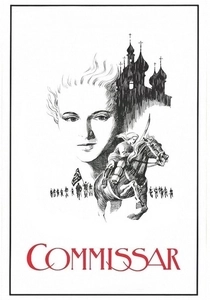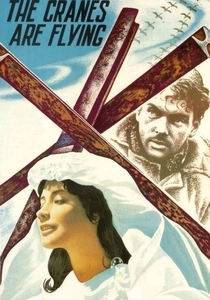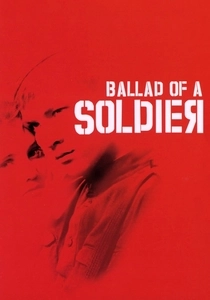Soviet cinema has always been a treasure trove of deep, thought-provoking narratives, and the theme of memory is no exception. These films not only explore personal and collective memories but also reflect on the impact of history, war, and personal loss on the human psyche. This curated list provides a window into the Soviet Union's cinematic exploration of memory, offering viewers a chance to reflect on their own experiences and the collective memory of a nation.

Come and See (1985)
Description: A harrowing depiction of WWII through the eyes of a young boy, this film delves into the traumatic memories of war, leaving an indelible mark on the viewer's memory.
Fact: The film was shot in real locations where the events took place, adding to its authenticity.
 Watch Now
Watch Now 
The Commissar (1967)
Description: This film intertwines personal memory with the broader historical context of the Russian Civil War, offering a unique perspective on how individual memories are shaped by larger events.
Fact: It was banned in the Soviet Union for 20 years due to its critical portrayal of the Civil War.
 Watch Now
Watch Now 
The Dawns Here Are Quiet (1972)
Description: This war drama focuses on the memories of female soldiers during WWII, showcasing how war memories shape their lives and the lives of those around them.
Fact: The film was remade in 2015, highlighting its enduring relevance.
 Watch Now
Watch Now 
The Cranes Are Flying (1957)
Description: This film captures the essence of memory through the lens of love and loss during WWII. It's a poignant reminder of how war affects personal memories and the longing for those who are lost.
Fact: The film won the Palme d'Or at the Cannes Film Festival, making it one of the most celebrated Soviet films internationally.
 30 Days Free
30 Days Free 
The Ballad of a Soldier (1959)
Description: A touching tale of a young soldier's brief leave from the front, where his memories of home and love are juxtaposed with the harsh realities of war.
Fact: The film was nominated for an Academy Award for Best Original Screenplay.
 30 Days Free
30 Days Free 
The Ascent (1977)
Description: This film uses the backdrop of WWII to explore themes of memory, sacrifice, and the human spirit's resilience, making it a profound study of memory in extreme conditions.
Fact: Larisa Shepitko, the director, tragically died in a car accident shortly after the film's release.
 30 Days Free
30 Days Free 
Mirror (1975)
Description: Andrei Tarkovsky's masterpiece is a non-linear exploration of memory, blending past and present in a poetic narrative that reflects on personal and collective history.
Fact: The film was initially met with mixed reviews in the USSR but has since been recognized as a cinematic masterpiece worldwide.
 30 Days Free
30 Days Free 
The House on the Embankment (1976)
Description: A film that examines the lives of residents in a prestigious Moscow apartment building, reflecting on the collective memory of the Soviet elite during the Stalinist purges.
Fact: The film was based on a novel by Yuri Trifonov, which itself was inspired by real events.
 30 Days Free
30 Days Free 
The Story of Asya Klyachina (1966)
Description: A film that explores the memories of a woman in a small village, reflecting on the simplicity and complexity of rural life and personal history.
Fact: Andrei Konchalovsky, the director, initially disowned the film due to heavy editing by Soviet censors.
 30 Days Free
30 Days Free 
The Forty-First (1956)
Description: This film tells the story of a sniper during the Russian Civil War, whose memories of love and duty intertwine, offering a poignant look at personal memory in times of conflict.
Fact: The film was remade in 2005, showing its lasting impact on Russian cinema.
 30 Days Free
30 Days Free 








